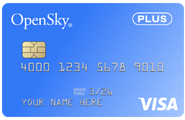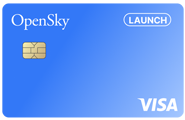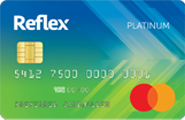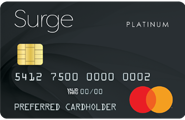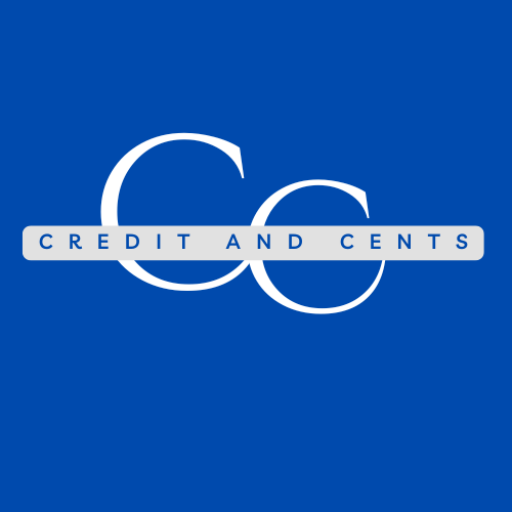This article contains links from our affiliate partners. Credit and Cents may earn a commission from affiliate partners (at no additional cost to you) on many offers and links.
Build Credit Fast — Especially for Students, Immigrants, and Credit Rebuilders
If you’re just getting started with credit—or getting a second chance at it—secured credit cards are one of the most effective and accessible tools available. They’re especially useful for college students, new immigrants, and credit rebuilders who may not yet have access to traditional credit products.
This 2025 guide breaks down:
-
What are secured credit cards and how do they work
-
The best secured credit cards to apply for
-
Credit-building strategies that work fast
-
Real expert insights and stats on credit growth
Why Secured Credit Cards Matter for Credit-Newcomers
If you’ve been denied for a regular card, don’t worry—you’re not alone. According to a 2023 report by the Consumer Financial Protection Bureau (CFPB), over 45 million adults in the U.S. are “credit invisible” or have unscorable credit files. That’s particularly common among:
-
College students without credit history
-
Immigrants new to the U.S. credit system
-
Low-income earners who rely on cash or debit or credit rebuilders
“Secured cards are the single best starting point for people who have limited access to credit. They help people learn the system and build trust with lenders.”
— Chi Chi Wu, Attorney, National Consumer Law Center
What Are Secured Credit Cards & How Do They Work?
A secured credit card works like a regular credit card but requires a refundable deposit—usually $200 to $500—to open. That deposit becomes your credit limit and protects the lender if you can’t pay.
Why it works:
-
You get approved more easily because the risk to the lender is low.
-
Your payments are reported monthly to Experian, Equifax, and TransUnion.
-
You build a positive payment history, which is the biggest factor in your credit score.
✅ Bonus: These cards don’t say “secured” on your credit report, and lenders treat them the same as unsecured cards.
Expert-Backed Tips: How Fast Can You Build Credit?
With consistent on-time payments and low balances, you can see a 50+ point jump in just a few months. Here’s a general timeline:
| Credit Stage | Expected Progress |
|---|---|
| No score → 580+ | 3–6 months |
| 580–669 → Fair | 6–12 months |
| Fair → 700+ | 12–24 months |
“Pay on time, keep your balance under 30%, and don’t open multiple cards at once. These simple habits can turn a poor score into a solid one within a year.”
— John Ulzheimer, Credit Expert and Former Equifax/FICO Analyst
Credit Bureau Reporting
Secured cards report to the three major credit bureaus each month — Experian, Equifax, and TransUnion, just like unsecured cards, and the credit reports do not make a distinction between secured and unsecured credit cards. Your goal should be to qualify for a decent unsecured card in about a year’s time by learning to use your secured credit card responsibly. Responsible use generally means on-time monthly payments and not maxing out your spending limit.
Generally, unlike prepaid cards, secured credit cards help build credit because they report to credit agencies, making them an ideal choice for those with no credit history or poor credit. In this Guide we will also highlight the selected unsecured credit cards that are targeted towards the credit building audience as an alternative to the secured credit cards.
Best Secured Credit Cards to Apply for in 2025
We’ve reviewed dozens of secured credit cards and ranked them based on fees, approval ease, rewards, and whether they report to all three bureaus. These are our top 5 picks:
🔹 1. OpenSky® Plus Secured Visa®
Best For: No credit check + zero fees
-
💳 Deposit: $300–$3,000
-
💸 Annual Fee: $0
-
💰 Rewards: Up to 10% cash back
-
🔍 Credit Check: None
-
📈 Reports to all 3 bureaus
Why It’s Great: No credit history? No problem. This card is perfect for immigrants and students just getting started.
🔹 2. OpenSky® Launch Secured Visa® Credit Card
Best For: Low deposit starter card
-
💳 Deposit: Starts at $100
-
💸 Annual Fee: $24 (Year 1), $36 after
-
🔍 Credit Check: None
-
💰 Rewards: Up to 10% back
-
📈 Reports to all 3 bureaus
Why It’s Great: Affordable for low-income applicants, and approval doesn’t depend on your credit score.
🔹 3. Upgrade Cash Rewards Visa®
Best For: No deposit + rewards
-
💰 Deposit: None (unsecured)
-
💳 Rewards: 1.5% cash back on all purchases
-
💸 Annual Fee: $0
-
🔍 Credit Score Needed: 600+
-
📈 Reports to all bureaus
Why It’s Great: If you already have a thin file or improving score, this no-deposit card offers cash back and large credit limits.
🔹 4. Reflex® Platinum Mastercard®
Best For: Quick unsecured access
-
💳 Credit Limit: $300–$1,000
-
💸 Annual Fee: $75–$125
-
🔍 Prequalify Without Impacting Score
-
🔐 No Deposit Required
Caution: High fees but works in a pinch. Only recommended if you can’t place a deposit.
🔹 5. Surge® Platinum Mastercard®
Best For: Credit recovery
-
💳 Credit Limit: $300–$1,000
-
💸 Annual Fee: $75–$125
-
🔍 Prequalify: Yes
-
🔐 No Deposit Required
Use if: You’re rebuilding after past issues and can’t secure a traditional card just yet. Be aware of the high fees.
Credit Card Comparison: At a Glance
| Card | Best For | Deposit | Rewards | Fee | Credit Check |
|---|---|---|---|---|---|
| OpenSky® Plus | No credit check | $300+ | 10% back | $0 | ❌ |
| OpenSky® Launch | Low income | $100+ | 10% back | $24–36 | ❌ |
| Upgrade Visa® | Rewards w/o deposit | None | 1.5% back | $0 | ✅ (600+) |
| Reflex® | No deposit | None | None | $75–$125 | ✅ |
| Surge® | Rebuilding | None | None | $75–$125 | ✅ |
Pro Tips: How to Use a Secured Card Effectively
✔ Make on-time payments every month
✔ Keep your balance below 30% of your limit
✔ Don’t apply for too many cards
✔ Set up autopay and reminders
✔ Track your credit monthly with free tools
FAQs
Q: Can I apply with no credit history or income?
Yes. Cards like OpenSky don’t check credit or require income documentation.
Q: Do I get my deposit back?
Yes. You’ll get it refunded when you upgrade or close the account in good standing.
Q: How long should I keep the card?
At least 6–12 months. The longer you keep it open and in good standing, the better for your score.
Final Thoughts: Start Building Credit Today
Your credit score is one of the most important financial tools you have. Without a strong credit history, you may face difficulties securing loans, renting an apartment, or even getting approved for a mobile phone plan. Now is the time to take control of your financial future.
Whether you’re a student trying to establish credit, an immigrant navigating the U.S. system, or simply trying to get back on your feet financially, a secured credit card is a powerful, low-risk way to start building credit.
“Don’t let a lack of credit hold you back. These cards are one of the few ways to turn the system in your favor—if you use them wisely.”
— Beverly Harzog, U.S. News Credit Analyst
✅ Ready to Build Credit?
Find the best secured credit card that fits your needs and budget, apply in minutes, and take your first step toward a stronger financial future.
📌 Why wait? Apply Now for the Best Secured Credit Card that best fits your needs and start building your credit immediately.

